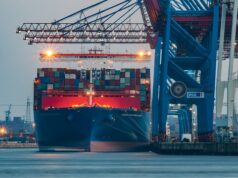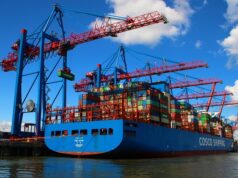
- Now is the time for Africa to become a major player in global supply chains by capitalizing on its vast resources of materials needed by high-technology, says UNCTAD report
- Africa’s abundance of critical minerals and metals positions the continent as an attractive new base for manufacturing driven by recent upheavals to move their production bases
- UNCTAD said the continent can mobilize more funds by removing barriers to supply chain finance, including regulatory challenges, high-risk perception, and insufficient credit data
Time has come for Africa to become a major player in global supply chain by harnessing its vast resources of materials for high-technology industries and its own growing consumer markets, the United Nations Conference on Trade and Development (UNCTAD) says in a new report.
UNCTAD said in its Economic Development in Africa Report 2023 launched last week in Nairobi that Africa’s abundance of critical minerals and metals positions the continent as an attractive destination for manufacturing, as trade turbulence, geopolitical events and economic uncertainty push producers to diversify their production bases.
“This is Africa’s moment to bolster its position in global supply chains as diversification efforts continue. It’s also an opportunity for the continent to strengthen its emerging industries, foster economic growth and create jobs for millions of its people,” UNCTAD Secretary-General Rebeca Grynspan said.
The continent is rich in metals, including aluminum, cobalt, copper, lithium and manganese, vital components in technology-intensive industries, positioning the continent as an attractive destination for manufacturing.
Africa also offers shorter and simpler access to primary inputs, a younger, technology-aware, and adaptable labor force and a burgeoning middle class known for its growing demand for more sophisticated goods and services, the report said.
UNCTAD said the report highlights creating an environment conducive to technology-intensive industries would help raise wages on the continent, now at a minimum of $220 per month, as against an average of $668 in the Americas.
Deeper integration into global supply chains would diversify African economies, boosting their resilience to future shocks. Expanding energy supply chains into Africa will help accelerate climate action, as its vast renewable energy potential, particularly solar, reduces production costs and reliance on fossil fuel.
Africa needs more investment in renewable energy to bridge the huge investment gap and tackle obstacles to the manufacturing of solar panels on the continent. Only about 2% of global investments in renewable energy goes to Africa. Growth in investment in renewable energy, as shown by UNCTAD, could promote the manufacturing of solar panels on the continent.
For example, in 2022, the Democratic Republic of the Congo was the largest producer of copper in Africa, at 1.8 million metric tons – and beyond exploration and extraction, the country is a potential destination for refining metal products for the electric vehicles industry.
Africa needs significant investment in infrastructure to bolster its position as a supply chain destination.
Seventeen African countries, including Angola, Botswana, Ghana and South Africa, have already implemented local content regulations to support the growth of local supply chains, foster technology transfer, create jobs and add value within their borders.
African countries should also secure better mining contracts and exploration licences for metals used in high-tech products and supply chains. This would strengthen domestic industries, enabling local firms to design, procure, manufacture and supply the necessary components.
The adoption of innovative digital technologies is also critical to optimizing supply chain processes. Countries such as Kenya have made notable progress in this realm, with rising rates of digital skills adoption in Africa.
UNCTAD is urging governments to create sound policies, foster an enabling regulatory environment and scale up programs to promote adoption of these technologies. It reiterates its call for better financing solutions to offer African countries and businesses affordable capital and liquidity to invest their supply chains.
The report says African small and medium-sized enterprises need more supply chain finance, which bridges the payment time gap between buyers and sellers, improves access to working capital and reduces financial strain. Africa’s supply chain finance market value rose 40% in 2021-2022 to $41 billion.
The continent can mobilize more funds by removing barriers to supply chain finance, including regulatory challenges, high-risk perception, and insufficient credit information, UNCTAD said.
RELATED READ: Global trade turns from record growth to negative in 2H: UNCTAD








